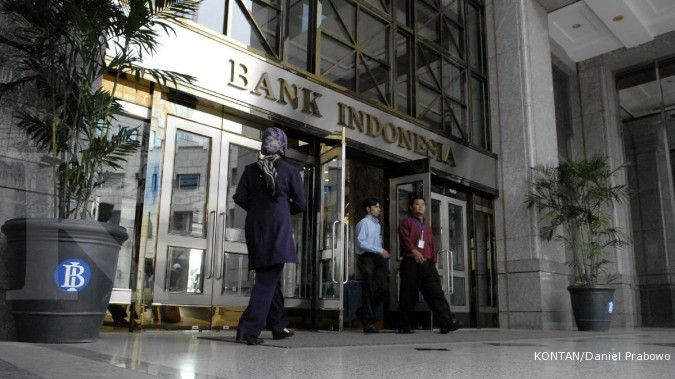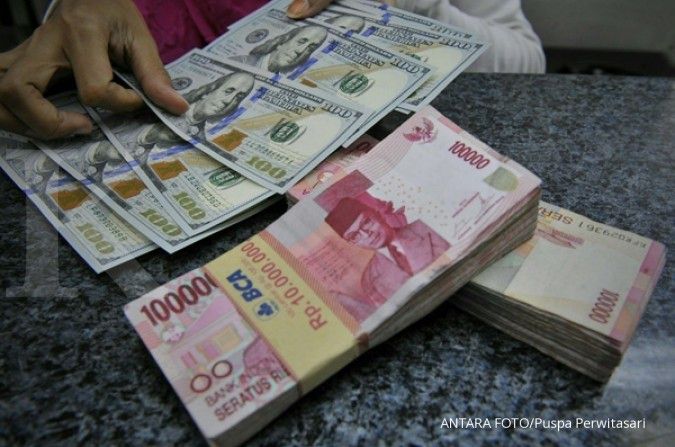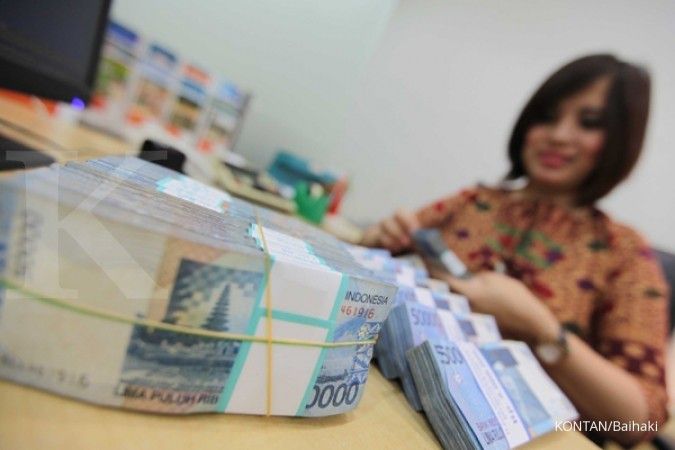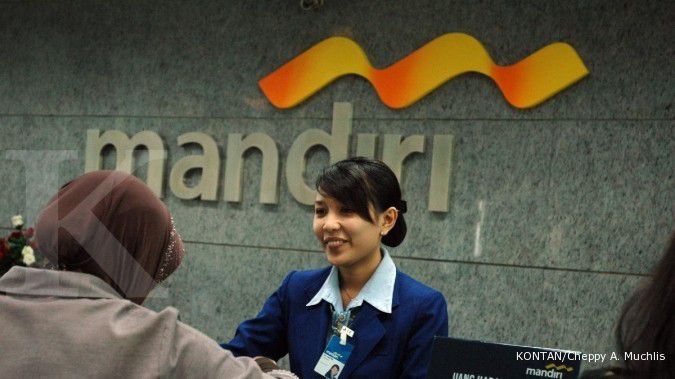JAKARTA. State-owned lender Bank Negara Indonesia (BNI) is looking to seal more hedging transactions with fellow state-owned enterprises (SOE) to help maintain the country’s external debt level, an executive has said.
According to BNI treasury head Bimo Notowidigdo, the lender is holding talks with several state-owned firms from various sectors regarding the possibility of arranging hedging transactions this year.
“There are a handful of SOE that we are looking to cooperate with in 2015. The priority is those with high exposure to offshore borrowings,” he said on Sunday.
BNI signed a Rp 250 billion (US$19.82 million)-worth cross currency swap (CCS) facility with national air carrier Garuda Indonesia on Jan. 13 for a period of three and a half years.
The deal was part of a larger CCS facility — worth Rp 1 trillion — between BNI, Garuda and private lenders CIMB Niaga and Standard Chartered Bank. The facility will enable Garuda to match its Rp 1 trillion-worth rupiah-denominated debt paper with its US dollar denominated operational costs.
The hedging transaction with Garuda was BNI’s second hedging deal with a fellow SOE after it struck a similar agreement with the airline in June 2014. With the latest deal, BNI now has Rp 750 billion-worth of SOE-related hedging transactions under its belt.
Hedging was previously avoided by SOE because of concerns that it would result in state losses. However, both the State-Owned Enterprises Ministry and Bank Indonesia (BI) have issued their own hedging regulations and have called on the companies to carry out hedging through swaps and forwards.
As previously reported, the ministry issued a decree in late September 2013 allowing the firms to carry out hedging mechanisms. BI followed suit the following month, issuing its own regulation to provide legal certainty for the firms to conduct swap and forward transactions.
State oil and gas firm Pertamina and state electricity company PLN are among the SOE that are expected to enter the hedging market soon, the pair reportedly needing substantial amounts of foreign currency to finance their operations.
“Hedging will help the firms keep a healthy level of external debt and can prevent them from suffering hefty losses stemming from forex [foreign exchange] volatility,” Bimo said, adding that they would also comply with government regulations by doing so.
Increasing external debt, especially amid the weakening of the rupiah, is a growing concern for the government. According to the latest data from BI, external debt stood at $294.4 billion as of November, rising 11.8 percent year-on-year.
The growth rate in November was higher than that reported in October, when it stood at 10.9 percent year-on-year. Non-banking firms, as the data show, posted a 10.7 percent annual increase in their external debt to reach $128.94 billion.
Meanwhile, BNI president director Gatot Suwondo said that hedging transactions and trustee contracts were expected to boost the lender’s fee-based income by 10 percent this year.
The company had previously said that it aimed to book a 10 to 12 percent raise in its fee-based income to Rp 10.57 trillion in 2014. BNI has not published its 2014 audited financial report, but according to its September financial performance, the bank had by that stage already booked Rp 7.29 trillion in fee-based income. (Tassia Sipahutar)
BNI eyes more hedging transactions with state firm
January 21, 2015, 02.42 PM
/2014/12/29/1932861347.jpg)
ILUSTRASI. Film Kalian Pantas Mati, salah satu film Indonesia terbaru yang bisa ditonton di Netflix mulai hari ini (3/8).
Source: The Jakarta Post
| Editor: Hendra Gunawan
Latest News
-
March 04, 2026, 05.43 PM
Indonesia's Pertamina Unit Monitors Safety of Its Vessels in Middle East
-
March 04, 2026, 05.27 PM
Fitch Cuts Indonesia Credit Rating Outlook to Negative
-
March 03, 2026, 12.18 PM
Indonesia Hopes to Get MSCI Response to Capital Market Reforms Before May
-
March 02, 2026, 04.45 PM
Indonesia has Seized 5 Million Hectares of Palm Oil Plantations, Task Force Says
-
March 02, 2026, 01.10 PM
Asian Assets Slide as Mideast Strikes Spark Oil Spike, Haven Rush
-
March 02, 2026, 10.49 AM
Bank Indonesia Monitoring Market Movements in Response to Conflict in Middle East
-
February 25, 2026, 08.28 PM
Inpex to Solicit Bids for Construction of Indonesia's Abadi LNG Project in Mid-2026
-
February 24, 2026, 03.38 PM
Eni to Reach Final Investment Decision for Indonesia Gas Projects Next Month
-
February 24, 2026, 01.00 PM
Asia Stocks Try to Steady after Wall Street Selloff Sims Mood













